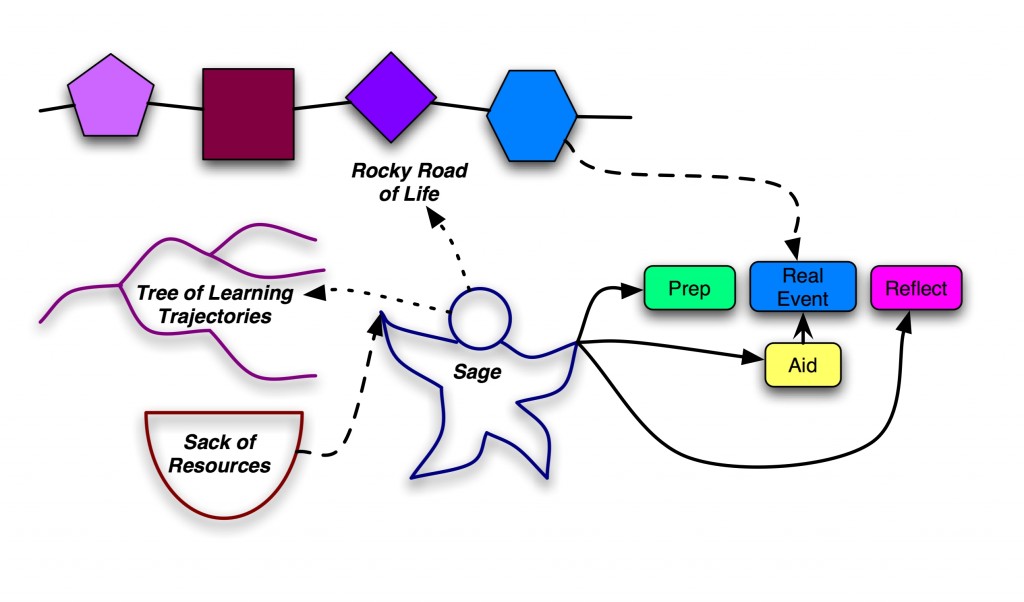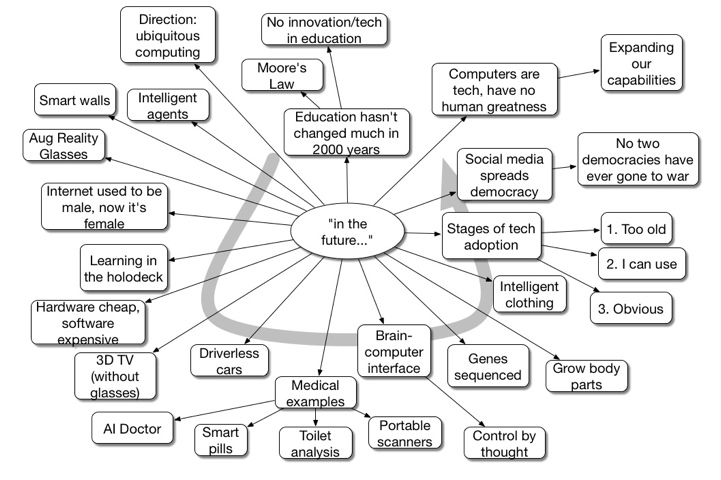Michio Kaku keynoted the DevLearn keynote today. With his signature phrase,”in the future…”, he covered new techs and made tentative connections to learning.
Archives for November 2011
Sage at the Side
A number of years ago, I wrote an article (PDF) talking about how we might go beyond our current ‘apart’ learning experiences. The notion is what I call ‘layered learning’, where we don’t send you away from your life to go attend a learning event, but instead layer it around the events in your life. This is very much part of what I’ve been calling slow learning, and a recent conversation has catalyzed and crystalized that thought.

Think about the sort of ideal learning experience you might have. As you traverse the ‘rocky road’ of life, imagine having a personal coach who would observe the situation, understand the context of the task and the desired goal, and could provide some aid (from some sack of resources) that could assist you in immediate performance. Your performance would improve.
Let’s go further. This sage, moreover, could draw from some curricula (learning trajectories) and prepare you beforehand and guide reflection afterward so that real performance event now becomes a learning opportunity as well, helping you understand why this particular approach makes sense, how to adapt it, and more. In this way, the sage moves from performance coach to learning mentor.
One step further would be to have learning trajectories not only about the domain (e.g. engineering) but also about quality, management, learning, and more. So learners could be developed as learners, and as persons, not just as performers.
Now this would be ideal, but individual mentors don’t scale very well. But here’s the twist: we can build this. We can have curricula, learning objects, and build a sage via rules that can do this. Imagine going through your workday with a device (e.g. an app phone or a small tablet) that knows what you’re doing (from your calendar), which triggers content to be served up before, during, and after tasks, that develops you over time. We can build the tutor, develop and access the curricula and content, deliver it, track it.
I hope this is clear. There are other ways to think about this, and I’ll see if I can’t capture them in some way; stay tuned. The limitations are no longer the technology, the limits are between our ears. Reckon?
